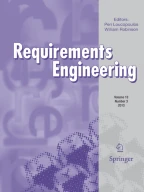Reuse forms one key mechanism in improving system development productivity and quality. In this paper we suggest a systematic framework for reuse processes, which is driven by ideas and concepts based on metamodelling. The framework enables us to consider reuse in a comprehensive manner and to develop support for reuse processes within a metaCASE environment. By utilising metamodelling concepts we expand reuse situations to cover both design artefacts and method components. Accordingly, the reuse framework consists of a system development process model, a type level hierarchy, a classification of reuse situation types, a component granularity model, and a model of reuse operations. We demonstrate the usefulness of the framework by analysing reuse support in a metaCASE environment: MetaEdit+. We also examine how the framework can help to strategise over possible software development scenarios (patterns) that involve various levels of reuse in situations where software requirements change considerably and there is a considerable number of design assets to exploit.
Author information
Authors and Affiliations
Rights and permissions
About this article
Cite this article
Zhang, Z., Lyytinen, K. A Framework for Component Reuse in a Metamodelling-Based Software Development. Requirements Eng 6, 116–131 (2001). https://doi.org/10.1007/s007660170009
Issue Date:
DOI: https://doi.org/10.1007/s007660170009
